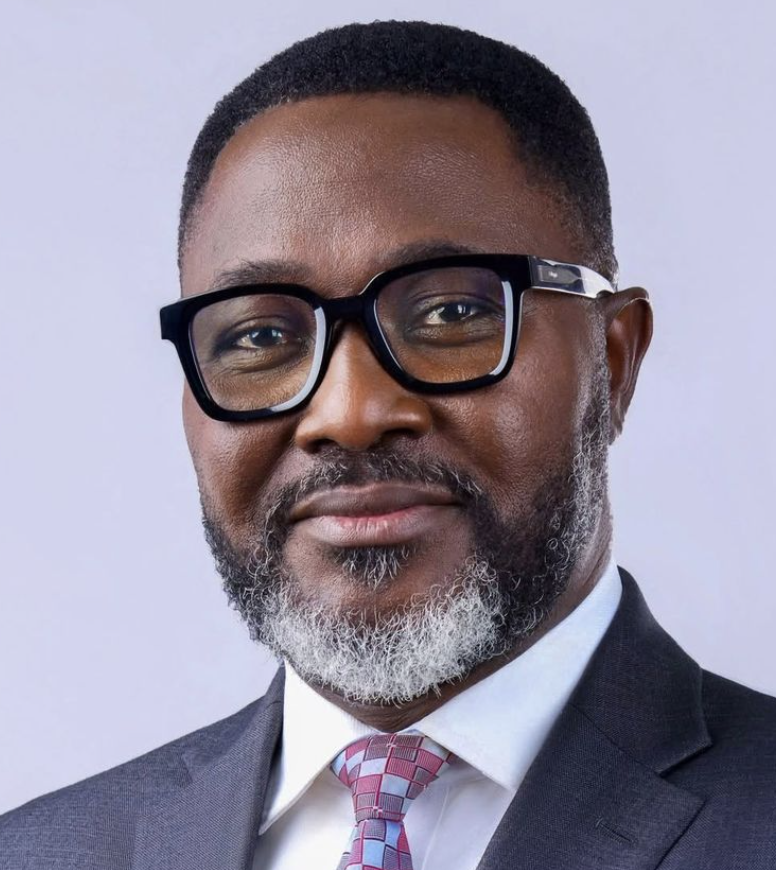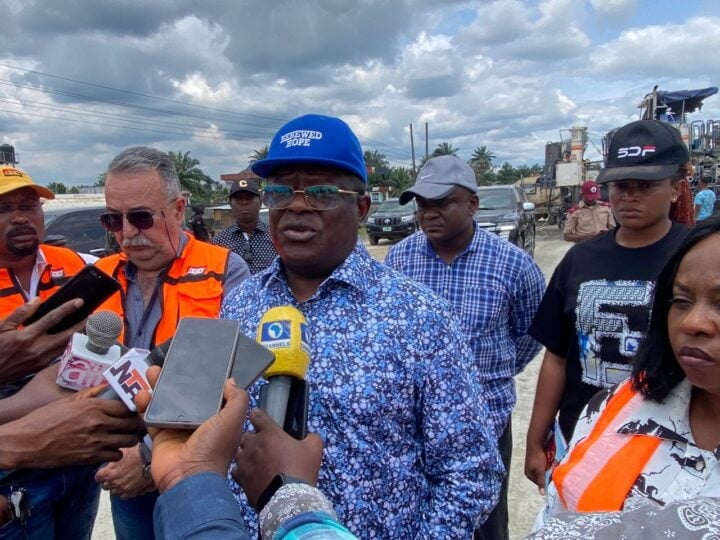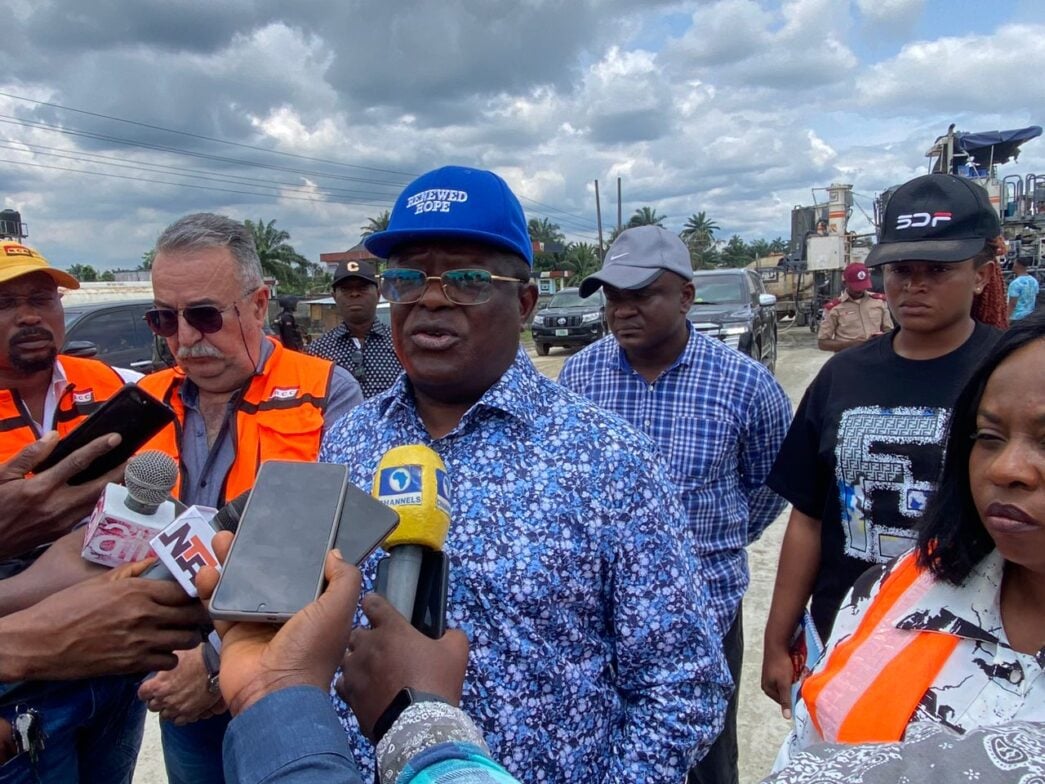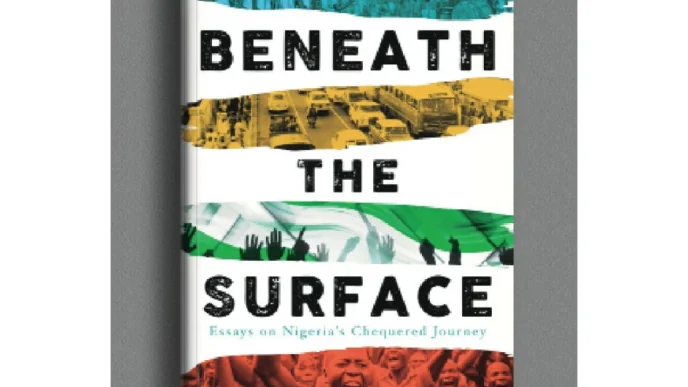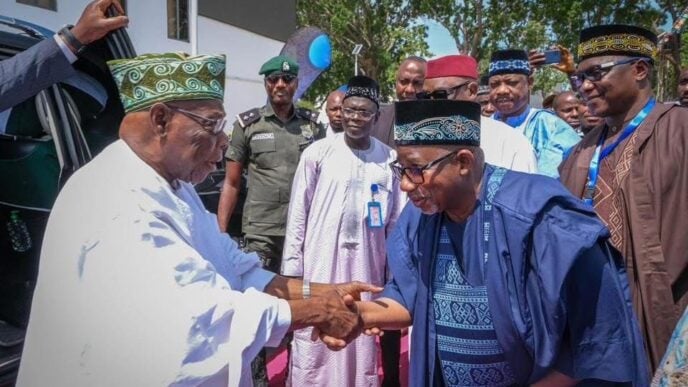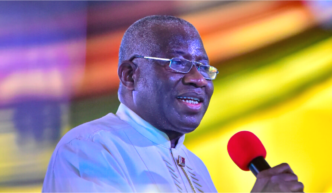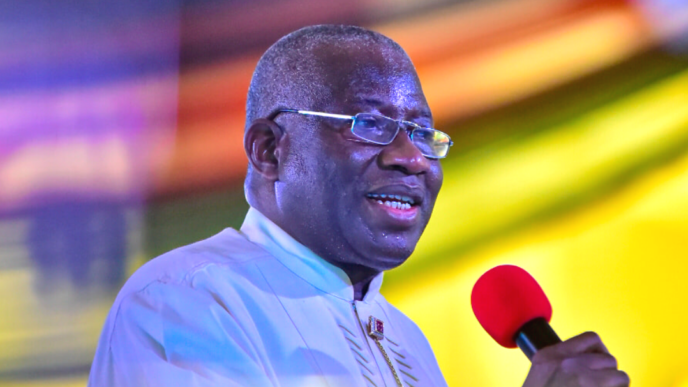David Umahi (in blue cap) before TV microphones | Photo: @ennyola0015 on X
The widely circulated face-off between television anchor Rufai Oseni and the Minister of Works, Senator Dave Umahi, was far more than a routine, heated exchange. It was a high-octane public seminar illustrating the fractured relationship between Nigeria’s Fourth Estate and its public servants. The confrontation; pitting the aggressive zeal of the interrogator against the defiant authority of the government official; serves as a crucial case study in the dynamics of journalistic ethics, the need for public accountability, and the corrosive influence of political polarization.
The Ethics of Adversarial Journalism
Journalism, in its democratic function, must be reasonably adversarial. The media’s duty is to ask uncomfortable questions, compelling those in power to justify their mandates, especially concerning sensitive issues like infrastructure delivery. However, the Oseni-Umahi interview immediately raised profound questions about journalistic ethics and professionalism.
Ethical reporting, often guided by the principles of the Hutchins Commission (Social Responsibility Theory), dictates that the media must serve the public interest above sensationalism. When the interrogation style – characterized by aggressive interruption, high emotionality, and a focus on peripheral issues – overshadows the substance of the policy, the line separating rigorous drive for accountability from mere quackery is crossed.
Advertisement
Professionalism requires clarity over conflict, and information extraction over indignation. The moment an anchor appears to prioritize winning a debate over informing the public, they inadvertently transform the discussion into a spectacle, letting the official off the hook for genuine policy scrutiny.
The Political Proxy Battle and Confirmation Bias
The dynamic of the interview was undoubtedly shaped by the perception that the anchor often adopts a critical stance towards the ruling party, while the Minister is tasked with defending it. This creates an adversarial trap where the discussion ceases to be a search for facts and devolves into a political proxy battle.
Advertisement
In this hyper-politicized environment, every tough question is interpreted by the official as a politically motivated attack, leading to an instinctive shift from technical explanation (e.g., specific road contract data) to declarations of political loyalty (e.g., defending the President).
This tension is compounded by media audience theory. The concept of Confirmation Bias suggests that viewers actively seek out, interpret, and recall information that confirms their existing political beliefs. Those who support the opposition hailed the anchor as a courageous hero fighting government impunity, while supporters of the ruling party decried the host as unprofessional and disrespectful. The result is not enlightenment, but reinforced polarization, where the spectacle of the clash gains more traction than the state of the nation’s roads.
Accountability and the Test of Emotional Intelligence
The incident was a severe public test of Emotional Intelligence (EI) for both the public official and the journalist. According to Daniel Goleman’s framework, effective leadership requires high levels of self-regulation and social skill.
Advertisement
For the Minister, accountability necessitates responding to even perceived rudeness with composure and a relentless focus on facts. Allowing frustration to dictate the response (by making the interview about the anchor’s personality instead of the Ministry’s performance) is a critical failure of EI. This response sacrifices the Minister’s authority and credibility, ultimately undermining the government’s mandate to deliver. The public requires leaders to be resilient defenders of policy, not fragile defenders of self.
Similarly, the anchor’s professionalism is measured by his ability to maintain strategic control. When an anchor allows his frustration to escalate the confrontation into an incoherent shouting match, he loses the power to effectively interrogate. The breakdown in communication protects the Minister from having to provide the detailed answers the public deserves.
The Moral Imperative of Substance
The Oseni-Umahi face-off highlights a clear moral imperative for contemporary Nigerian leadership: the necessity of pivoting from rhetoric to demonstrable substance. Public office holders must understand that their tenure is inherently transparent, and their only credible defence against both genuine scrutiny and political blackmail must be verifiable performance.
Advertisement
Conversely, the media must recognize that their immense power to hold officials accountable must be wielded with discipline. When the demand for accountability degenerates into a quest for a viral soundbite, the media inadvertently damages its own credibility and feeds the cycle of political cynicism.
The ultimate takeaway is that the Nigerian public loses when the crucial interface between governance and media breaks down. Both sides must elevate their game: the Minister must accept the relentless gaze of the public and respond with data and dignity, while the media must ensure that the pursuit of truth is governed by ethical rigour, placing the national interest above the thrill of a captivating political spectacle.
Advertisement
Sola Adebawo is an accomplished business leader and communications expert with extensive experience in the oil and gas industry. He currently serves as the General Manager of Government, Joint Venture, and External Relations at Heritage Energy. Adebawo is also an author, scholar, and ordained minister, known for his writings on socioeconomic issues, strategic communication and leadership.
Advertisement
Views expressed by contributors are strictly personal and not of TheCable.
